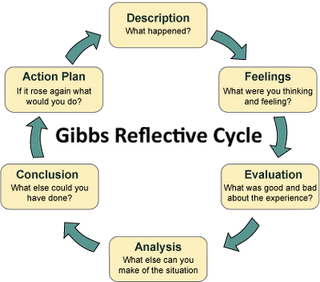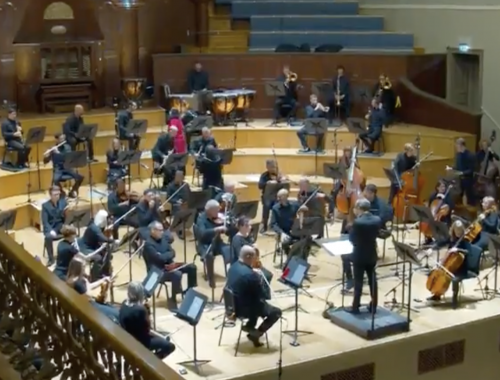Cruising for a Bruiser
After a strenuous month fuelled on caramel cold brews and late night library dates, I had finally reached the second year finish line. My next course of action; find a placement for third year. The sheer thought of this stressed me to the high hills, as I began to dread the idea of placement before I had even sourced one. What if I hated it? What if the people where horrible? What if I couldn’t even find 100 hours of work to begin with?

For this blog post, I will be using Gibbs method to reflect on my placement.
https://www.kent.ac.uk/learning/PDP-and-employability/pdp/reflective.html

After sending out one email, I received a response within a bathroom break time frame. Bruiser Theatre Company, a local physical theatre company founded by the brilliant Lisa May. I can recall Lisa coming into my GCSE drama class when I was around 15 / 16. I had little to no confidence, and was still incredibly anxious when it came to live performance. From the way she approached theatre, to the games she played with us, to the movement exercises, it completely changed my perception on what drama could be.
https://www.bruisertheatrecompany.com/

Although improvisation encourages us to use dialogue and speech, it encourages us further to express ourselves through ‘gesture, posture and facial expression’, whilst exaggerating / taking on a persona’ through a ‘wider range of language than ordinary exchanges might evoke.[1] Growing up as a dancer I was always much more comfortable when expressing myself through movement, so Bruisers focus on improvised physicality drew me in immediately, opening my eyes to a whole new world of theatre.
After a few emails back and forth with Bruiser, it appeared they only had work placement opportunities within the areas of admin and education, which was unfortunate for someone with below average organisation skills, and little to no patience when it came to children.
A few weeks later whilst sitting in my local café, I received a call from an unknown number. Peter Heenan, Bruiser’s Education Officer, notified me that internship position on their 2021 Arts Academy was still available ( a two week intensive programme for young people aged 14 – 18). I was immediately apprehensive on working with teens, and also doing my placement months before I was even due to start the module. However, the sheer idea of being able to create new theatre every day for two weeks after COVID19 seemed like a dream, and I couldn’t say no.
A short three days after receiving Peter’s phone call, I started my placement on the 5th of July, 9am sharp, in Queens Film Theatre. Upon arrival I met Lisa, who introduced me to Declan, a student from Dublin who was interning alongside me. As each of the young participants made their way in, it was our jobs to sign each of them in, make note of their current COVID19 status, whilst also taking their individual temperatures. Once we had made our way up to the rehearsal space, the course leader Rob Crawford entered the room.
His energy, enthusiasm, and sheer love for theatre was completely off the scales. I strangely, began to feel panicked, doubting my abilities to work with a younger group of performers. I realised I didn’t have the fearlessness and confidence I thought I had, and immediately began to feel out of my depth. The way Rob was able to command and control a room was exceptional. He instantly developed a rapport with the young actors, and created a comfortable and non-judgemental creative space. I knew that sitting around, taking notes, was not going to make the best first impression with the performers, and that I had to swallow my pride, and join in.
I’m not going to lie, I felt absolutely ridiculous, but I certainly couldn’t let them know that. After a while though I began to feel at ease. The fearlessness, ambition, and insane talent the young people demonstrated from the get-go was insane; forcing me to step it up.
A personal favourite game of mine featured all of us stranded on an imaginary rocket ship in space. To win the game, we each simply had to hold the ‘oxygen tank’ (aka Rob’s water bottle), and then pass it along to another fellow astronaut. If we didn’t complete this in time limit, we would lose the game. However, an imposter (aka an undercover alien) was secretly selected before the game commenced, and if they got hold of the oxygen, everyone would have to perform a dramatic death.
I was once again blown away by the groups tenacity and comedic improvisation skills, as they each desperately tried to come in contact with the bottle of water. Although it felt like just a fun warm up game at the time, I really grew to appreciate the exercise each time we played it. Pre-placement, I had intensely studied and rehearsed for a duolog as part of another module, where we learnt the importance super objectives. A super objective, at all times, must be ‘mentally stimulating’ and ‘emotionally charged’, giving you the ability to ‘propel’ into action whilst performing.[2]

I must admit that I had a habit of overcomplicating, and overthinking previous performances, when trying to work out past character super objectives / general objectives. Playing this game, specifically with younger actors, illustrated the importance of having a driving point in a drama piece, as there would ultimately be no drama without a super objective. Despite all the wonderful space related activity going on within the scene, nothing would sway the performers focus from their main objective, which made the game intense, and brilliant to watch.
It was brilliant to see these kinds of exercises being introduced to the performers so early on in the process, as it gave them further support and practice when rehearsing for the actual performance. And honestly, I never thought playing a drama game with a bunch of teens would simplify something so much, that I had struggled grasping the idea of previously. One may say it was a ‘successful’ first few days at the office.
[1] Bräuer, G, 2002. Body and language. Westport, CT: Ablex Pub, p.4.
[2] Merlin, Bella (2007). The Complete Stanislavsky Toolkit, London: Nick Hern Books. p. 225.
BIBLIOGRAPHY
Bräuer, G, 2002. Body and language. Westport, CT: Ablex Pub
Merlin, Bella (2007) The Complete Stanislavsky Toolkit, London: Nick Hern Books
[2] Merlin, Bella, 2007. The Complete Stanislavsky Toolkit, London: Nick Hern Books. P. 225.
A walk in the park
You May Also Like

In at the Deep End: Recording an Orchestra
26 November 2021
Feast vs Famine
26 November 2021

